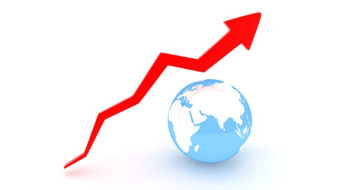

Current holders of long-term Canadian and U.S. bonds should brace for the possibility of sharp interest rate hikes from the U.S. Federal Reserve, an economist is warning.
Among the uncertainties surrounding U.S. President Donald Trump’s plans for fiscal stimulus is the fact that the U.S. economy is already doing well and will likely reach full employment level by the end of 2018, said Avery Shenfeld, managing director and chief economist at CIBC Capital Markets during CIBC Mellon’s industry insights event on Tuesday in Toronto. “Once that happens, fiscal stimulus doesn’t actually increase growth at all. If you step on the gas of fiscal policy, what you’ll end up doing is telling the federal reserve that it has to raise rates faster to prevent inflation from breaking up.”
Trump’s proposals, which include ramping up infrastructure and military spending while leaving other government programs intact, could lead to sharp increases in bond yields because every $100 billion in fiscal stimulus needs to be offset by rate hikes of 50 basis points, said Shenfeld. Equity markets, however, won’t feel the effects of further rate hikes as much as fixed-income investments, according to Shenfeld.
As for the economic prospects overall, economic growth in both Canada and the United States will climb to more than two per cent during the next couple of years, said Shenfeld.
Read: Investment managers stay put on strategy despite geopolitical volatility: survey
While that’s nowhere near the levels seen before the 2008 financial crisis, the outlook is positive for Canada, which has performed poorly in recent years due to a slump in the prices for commodities that constitute almost half of its exports, Shenfeld noted.
“We’re not living in the same demand-filled commodities boom that we had in the prior cycle. So the direction of individual commodity prices is, in fact, much more dependent on what’s happening on the supply side,” said Shenfeld.
With the Organization of the Petroleum Exporting Countries having agreed to trim oil production, Canadian oil prices will likely recover to about $50 per barrel this year, said Shenfeld. He predicted the price would rise to about $55 to $60 a barrel in 2018.
But while Canada’s economic prospects look steady, its fate closely follows that of the United States, said Shenfeld, pointing to Trump’s inflationary policies as risks that investors should hedge against. The economic outlook is, he added, is “going to be pretty dull as long as Trump doesn’t go bump in the night and throw us off course.”
Read: Investment returns predicted to fall as uncertainty leaves economy ‘most unstable’
Still, it’s unlikely Trump will be able to introduce as much fiscal stimulus as promised, said Shenfeld. “We’re actually a bit skeptical. Instead of that huge fiscal stimulus, maybe we’re going to get a lot less . . .,” he said, noting the budgetary concerns of many Republican members of the Senate and the House of Representatives.
“They don’t want to blow up the budget deficit,” he added. “They don’t want to spend more; they want to spend less.”
